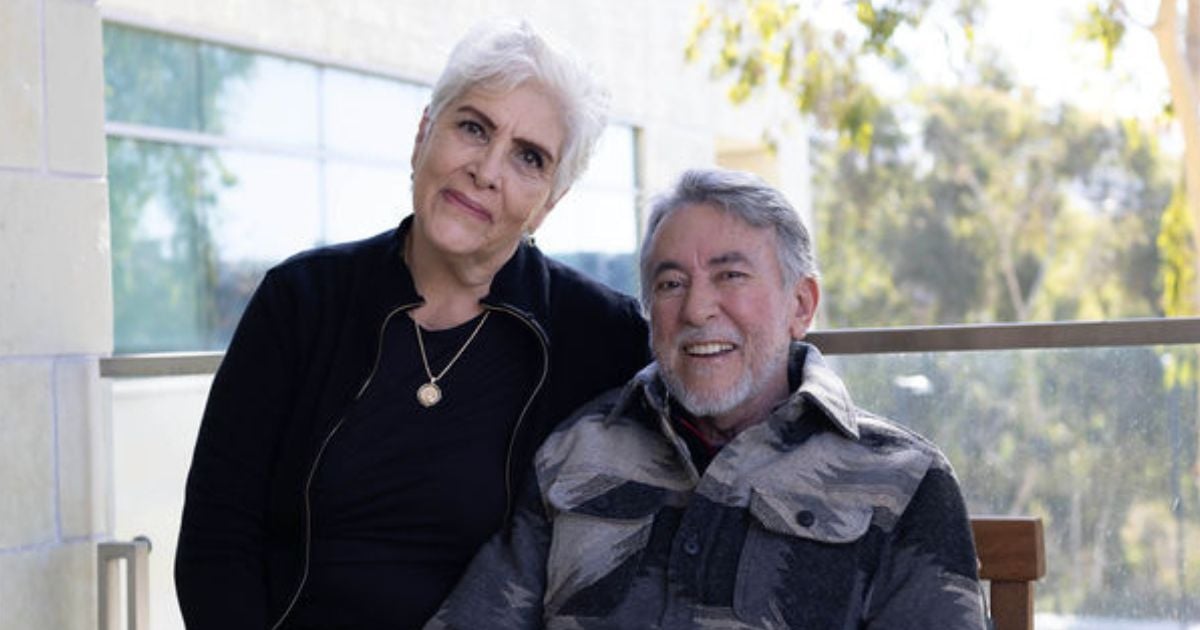Gastrointestinal Stromal Tumors (GIST)
Look to UC San Diego Health for expert GIST care.
We are the region's leader in GIST care and one of the few centers on the West Coast that sees a high number of patients with this rare disease each year. Your UC San Diego Health doctors continue to make important findings about GIST to prevent disease and improve patient outcomes.
About GIST
Gastrointestinal stromal tumors, also called GIST, are rare tumors found throughout the gastrointestinal tract. They originate from the so-called "pacemaker" cells that signal muscles to contract and move food and liquid along the digestive tract. Most of these tumors occur in the stomach. They can also occur in the small intestine, colon, rectum or esophagus.
Gastrointestinal stromal tumors are highly variable. Tumors vary greatly in their growth and invasiveness.
Some GIST are inherited.
Comprehensive Diagnosis
At UC San Diego Health, you are evaluated by a team that includes a surgical oncologist, medical oncologist, pathologist, radiologist, and gastroenterologist with expertise in GIST, as recommended by the National Comprehensive Cancer Network (NCCN) and European Society of Medical Oncology (ESMO) guidelines.
To accurately diagnose your condition, your doctor will perform a thorough evaluation that usually includes imaging and biopsy. Imaging methods may include:
- Endoscopic ultrasound (EUS)
- Computed tomography (CT) with contrast enhancement
- Magnetic resonance imaging (MRI)
- Positron emission tomography (PET)
Personalized Treatments for GIST
Receive a comprehensive care plan based on many factors, including:
- Number of tumors
- Their size and location
- Involvement of adjacent organs
- Proximity to critical structures
- Your symptoms and overall health
In addition, genomic and molecular testing at our Center for Personalized Cancer Therapy may be recommended to refine your care plan.
Advanced Treatments for GIST
Surgery is the most common treatment for GIST. Your UC San Diego Health physician offers the full spectrum of treatment options to treat your cancer, including:
- Minimally invasive GIST resections, including laparoscopic and laparo-endoscopic resections
- Organ-sparing resections to remove localized tumors
- Multi-visceral resections to remove locally advanced tumors
- Cytoreductive surgery for metastatic GISTs
- Systemic therapy with oral tyrosine kinase inhibitors. These drugs have become the first-line medical treatment for metastatic, unresectable, or recurrent GISTs.
- Promising investigational therapies through clinical trial participation
- Microwave (thermal) ablation
GIST Doctors and Surgeons A team approach to your care
Our team of specialists includes Jason Sicklick, MD, a surgical oncologist who specializes in minimally invasive gastric resections of GIST, as well as medical, surgical and radiation oncologists who specialize in gastrointestinal cancers or sarcomas. Dr. Sicklick was named Clinician of the Year by the Life Raft Group, a GIST advocacy organization.
Second Opinion Services
When you have a diagnosis as serious as cancer, you deserve a second opinion on your treatment options.
Clinical Trials
Advancing Cancer Care and Prevention
UC San Diego Health physicians are actively researching ways to improve cancer care. By joining a clinical trial, you may receive a new cancer treatment before it is available to the public. If your cancer has not responded to standard therapies, talk to your doctor about whether a clinical trial could be right for you.
Patient & Family Support Services
At UC San Diego Health, your care goes beyond treating disease. It also includes supporting you and your loved ones emotionally throughout your cancer journey. Most of our support services are free.
Patient Resources
Medical Disclaimer
Note: These are potential resources you may find helpful. This is not an exhaustive list nor an endorsement of any group. Contact organizations directly for details, and consult your treatment team if you have any questions or concerns about using one. These resources do not take the place of your treatment team. We update this list regularly, but if any resource is no longer available or missing from this list, please let us know at MCCSupportServices@health.ucsd.edu.
Location
Support GIST Research
Make a financial gift to support our researchers and their efforts to improve the care and survivorship of people with GIST.




